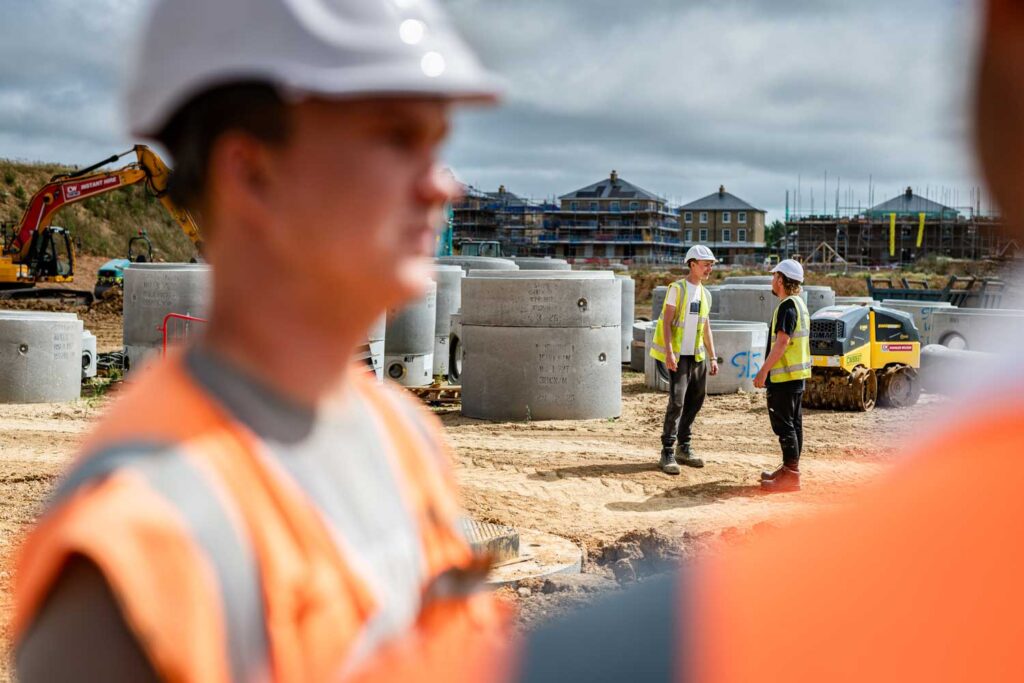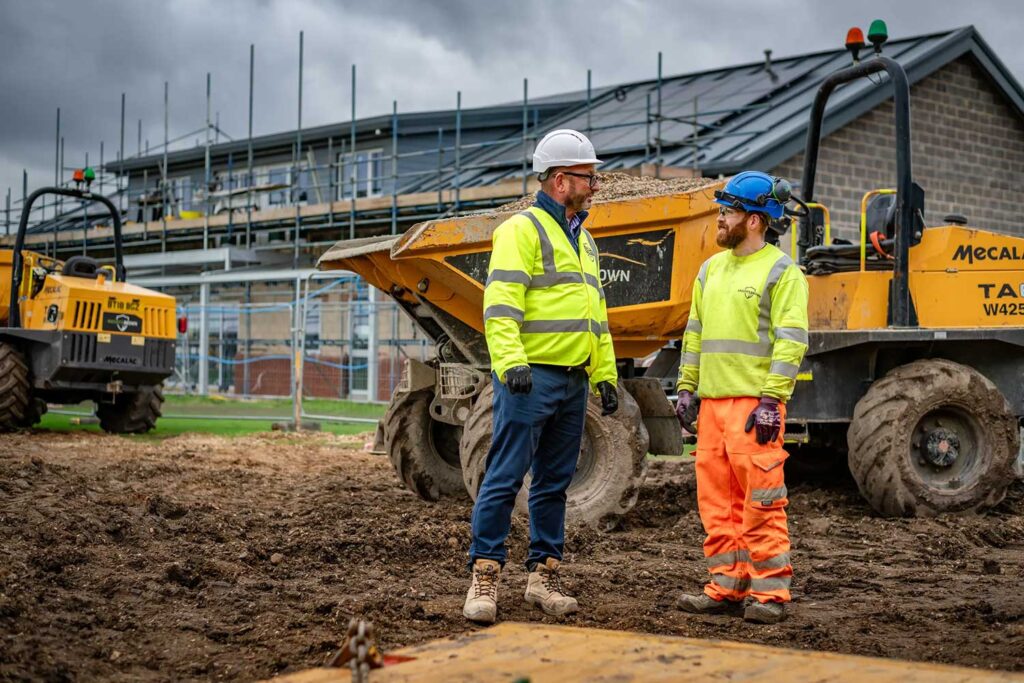What is Groundworks?
Groundworks is the essential first phase of any construction or civil engineering project. It involves preparing the site so that safe, stable, and long-lasting structures can be built — from homes and schools to roads, railways, and commercial developments.
This includes everything beneath the surface: foundations, drainage systems, utility trenches, ground stabilisation, and access roads. Without groundworks, no structure can begin — it’s quite literally the foundation of the built environment.
Quick facts
Salary Range (UK)
£20,000 – £45,000+ depending on experience and qualifications
Entry Routes
Apprenticeships, or direct employment with training
Environment
Outdoor construction sites, local or national projects

What Does a Groundworker Do?
Groundworkers are skilled, hands-on professionals who ensure the land is safe, stable, and ready for construction. They work closely with engineers, architects, and site managers to bring plans to life — starting at ground level.
Their responsibilities can include:
Site Investigation – Testing soil and rock, and identifying underground risks (e.g., utilities or contaminants)
Site Clearance – Removing vegetation, debris, or existing structures
Foundation Work – Digging and pouring footings and concrete slabs to support buildings
Trenching – Creating precise channels for water, gas, electrical, and fibre utilities
Drainage and Sewerage Installation – Ensuring proper flow and preventing future flooding or water damage
Ground Compaction and Levelling – Making sure the soil is stable, flat, and load-bearing
Hard Landscaping – Installing external elements such as kerbs, retaining walls, access roads, and fencing
Groundworkers are often the first on-site and sometimes return to complete external works, making them key players from start to finish.
Types of Groundworks
Groundworks can be broken down into two main types:
Large-scale projects for commercial, public or industrial developments. These could include schools, supermarkets, hospitals, airports, warehouses, and large housing estates. They often require coordination with heavy machinery, utility companies, and engineers.
Domestic Groundworks
Smaller projects on residential properties — such as foundations for house extensions, driveways, garden studios, drainage solutions, or landscaping. These projects often require precision, speed, and high levels of customer service.
Across both sectors, the skills and safety standards are consistent. Groundworkers need to understand building plans, use equipment safely, and deliver high-quality results under pressure.
Is Groundworks Right for You?
Groundworks is a great career choice for people who are:
Hands-on and practical – You enjoy physical work and making things happen
Team players – You work well alongside others and take pride in shared goals
Problem-solvers – You can spot issues early and fix them quickly
Safety-aware – You understand the risks and take them seriously
Reliable and hardworking – You show up, do the work, and keep projects moving
You don’t need to have prior experience to get started — just a willingness to learn, stay active, and take responsibility.
Many groundworkers progress quickly into roles such as machine operator, foreman, site supervisor, or civil engineering technician. Others move into plant operations, health & safety, site management, or self-employment.
Career Progression in Groundworks
Groundworks offers multiple routes for growth and specialisation. With support from your employer — including mentoring, training, and qualifications — you can climb the ladder quickly and take on more technical or leadership roles.
Typical job roles and pathways include:
Entry-Level
Supporting trades, moving materials, digging and site prep
Groundworks Apprentice
Learn while you earn, gaining on-site experience and qualifications (e.g. T Level in Onsite Construction or Groundworker L2 Apprenticeship)
Mid-Level
Operate tools and machinery, install drainage, pour concrete, and read site plans
Machine Operator / Dumper Driver
Operate excavators, dumpers, and rollers (requires CPCS or NPORS certification)
Specialise in installing sewer, water, and stormwater systems
Advanced
Lead a team, manage day-to-day site operations, liaise with site managers
Site Engineer Assistant / Trainee Technician
Work alongside civil engineers to deliver more complex elements
Specialise in compliance and safe practice on site
Long Term
Oversee large teams and budgets, work directly with clients and stakeholders
Self-Employed Contractor
Run your own crew and take on domestic or commercial contracts
With further qualifications, transition into more technical design, engineering, or infrastructure roles


